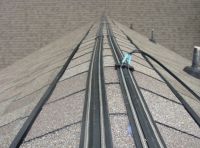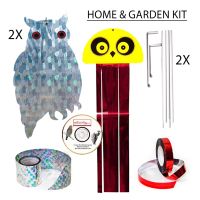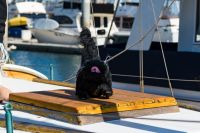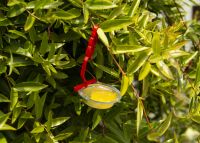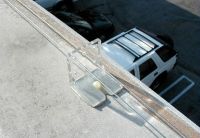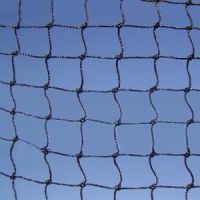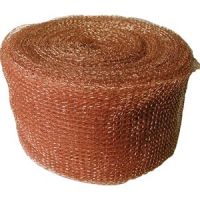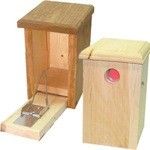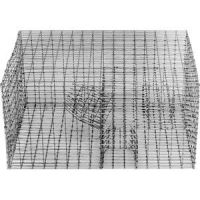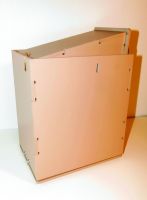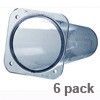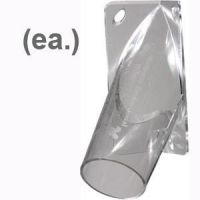Sparrow

Sparrow Identification:
House sparrows are a common problem bird in urban areas. These small, quick, intelligent pest birds are predominately brown and grey in color, with black striping around the eyes and neck in the male of the species. Sparrows favor branch and wire perching and their short conical bills are ideal for cracking seeds and grain. Sparrows are very adaptable and have learned to nest in our structures and eat our scrap food. Sparrows often gather in huge flocks to fed and roost, aggressively forcing other birds out of their territories. Sparrows prefer nesting in small enclosed places such as house shutters, drainage piping, building rafters and corrugated metal siding. These pest birds average about 20 offspring a year, allowing their numbers to increase rapidly to infestation levels.
Sparrow Control:
The most effective control solution is exclusion; use 3/4" mesh Birdnet for large open areas. Bird-Shock is the only ledge deterrent system that is effective against sparrows. New 2-chambered Sparrow Traps are effective at trapping small quantities of sparrows. The trapping program should be combined with periodic nest removal. Along with trapping, Mist nets can be installed in the flight paths to capture these birds in enclosd areas. Fog-Force/ Rejex-it, is a efficient taste deterrent for the management of nuisance birds at problem areas. Audio / visual systems are typically ineffective at confined, protected buildings but the Bird Wailer is usually successful at large agricutural sites.
In addition to bird net, another effective sparrow control product is a electrical track product. This is particularly useful for sparrow control on building ledges. Sparrows do not react to bird scare products, but two-chambered sparrow traps are a viable option for controlling small quantities of sparrow problems. A nest removal program should be implemented along with trapping for long-term effectiveness to get rid of sparrows. A new technique for sparrow bird control that has found some success is fogging with methyl anthranilate, a grape extract that reacts with the birds olfactory sense like pepper spray. This is a technique that should be undertaken by experienced professionals only.
Damage Caused by Sparrows:
Sparrows are noisy problem birds, especially when they congregate in large flocks. Besides the annoying noise factor, sparrow problems are often found in manufacturing and food processing plants. These areas are particularly appealingto sparrows for their variety of nesting and feeding sites. Sparrow nests cause flooding from backups in gutters and drainage pipes, as well as clog machinery and even start fires from nesting materials in machinery housings. Sparrow droppings contain uric acid which is highly corrosive and can cause extensive damage to metals and other substrates it sits on for long periods. In addition, the bacteria, fungal agents and ectoparasites found in sparrow droppings and nesting materials are responsible for a host of serious diseases, including histoplasmosis, encephalitis, salmonella, meningitis, toxoplasmosis and more. Many companies also retain significant clean up and maintenance costs due to sparrow control problems they don't resolve.

